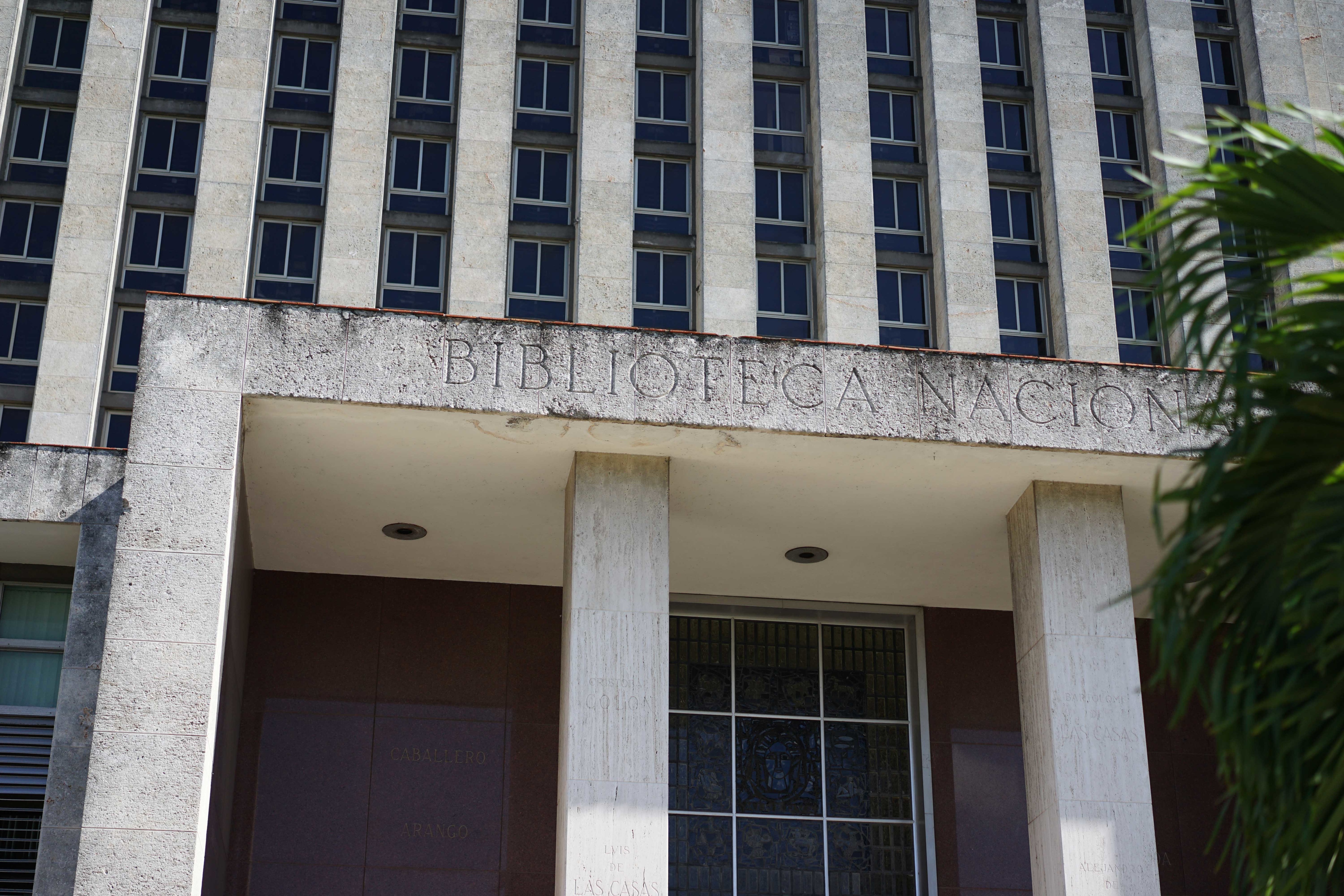
I started researching libraries in Cuba. There wasn’t a lot online but I found out that in 2012 there were a whole series of small independent libraries that had opened up to showcase books that weren’t featured in the biblioteca nacionale. It seemed interesting, it was a story that had been written about and there was an organization friends of the cuban libraries in NY that was helping to support their resistance. My immediate thought was that I should explore that but then I went back to my original purpose behind the library --- alternative ways of indexing, cataloging and organizing books. These individuals were using the library in a way that wasn't necessarily related to that and it all felt a little political and involved (considering I don't speak spanish) so I put the research aside and decided that instead I would simply ensure that when I was down there I would make the journey to the national library and just visit and see what happened.
The first attempt at visiting was fairly anticlimactic. It was closed. The guard out front let us see inside but alas we weren’t allowed in. He told us to come back the next day. Alright --- we get there the next day, not really having any particular plan other than to make the journey, to visit and to look further. As we enter the library the 2nd time another guard approaches us and tells us that we are not allowed to be there and points us towards a kind middle aged Cuban (librarians have the same demeanour around the world it seems) who told my friend that foreigners in fact weren’t allowed to wander around the library unsupervised. There were public tours but that we could wander around on the first floor where there were the card catalogs and the a small gallery space that featured some highlights from the library old propaganda from the revolution and old copies of newspapers from the communist daily.
We took her up on the offer and my friends and I walked around the main floor. We came to the card catalogs and as I pulled one of the drawers open in the large CUB the guard who was close by came and put me in my place. Not for foreigners.
This whole experience reminded me just how political and important, guarded information still is. Even in the simple ways of organizing, what you include what you don’t include is an act that a government protects. It seems almost a given that ‘information wants to be free’ that everything is accessible that the value is no longer in information but what you do with it. And yet here in CUBA the government and the guard in front of me was proving the opposite to still be true. Information, organizing has power.
